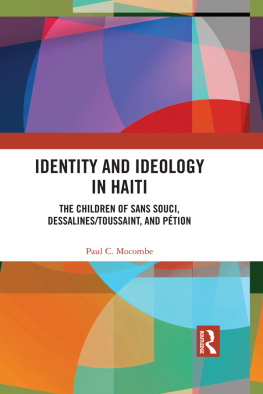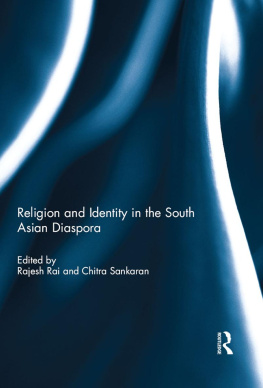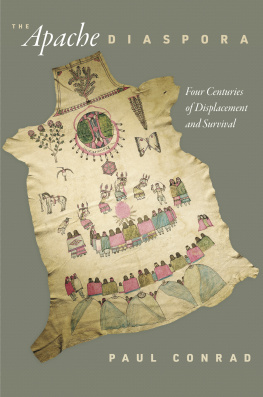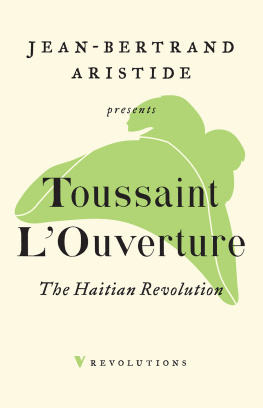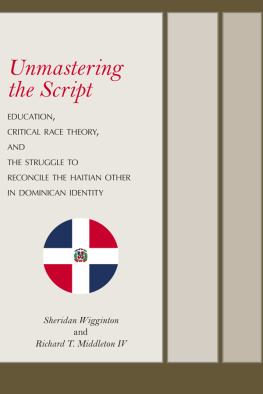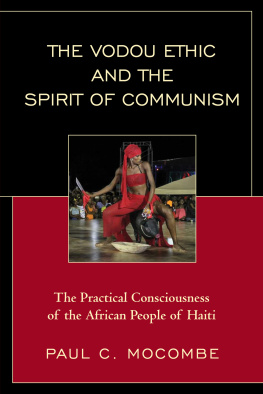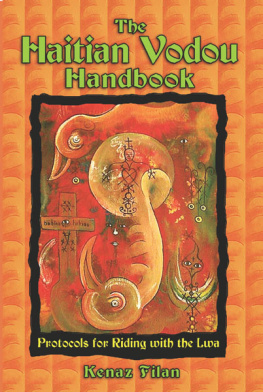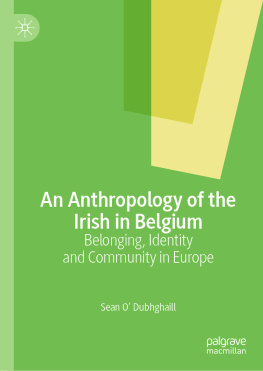Identity and Ideology in Haiti
Using a structurationist, phenomenological structuralism understanding of practical consciousness constitution as derived from what the author calls Haitian epistemology, Haitian/Vilokan Idealism, this book explores the nature and origins of the contemporary Haitian oppositional protest cry, the children of Ption v. the children of Dessalines. Although traditionally viewed within racial termsthe mulatto elites v. the African (black) poor majorityMocombe suggests that the metaphor, contemporarily, as utilized by the educated black grandon class (middle-class bourgeois blacks) has come to represent Marxist categories for racial-class (nationalistic) struggles on the island of Haiti within the capitalist world-system under American hegemony. The ideological position of Ption represents the neoliberal views of the mulatto/Arab elites and petit-bourgeois blacks; and nationalism, economic reform, and social justice represent the ideological and nationalistic positions of Dessalines as articulated by the grandon, actual children of Toussaint Louverture, seeking to speak for the African majority (the children of Sans Souci, the Congolese-born general of the Haitian Revolution) whose practical consciousness, Vodou Ethic, and the spirit of communism, differ from both the children of Dessalines and Ption. In the final analysis, the moniker the children of Ption v. the children of Dessalines is a truncated understanding of Haitian identity constitution, ideologies, and their oppositions.
Paul C. Mocombe is a former Visiting Professor of Philosophy and Sociology at Bethune Cookman University, Assistant Professor of Philosophy and Sociology at West Virginia State University, and the President/CEO of The Mocombeian Foundation.
First published 2018
by Routledge
711 Third Avenue, New York, NY 10017
and by Routledge
2 Park Square, Milton Park, Abingdon, Oxon OX14 4RN
Routledge is an imprint of the Taylor & Francis Group, an informa business
2018 Paul C. Mocombe
The right of Paul C. Mocombe to be identified as author of this work has been asserted in accordance with sections 77 and 78 of the Copyright, Designs and Patents Act 1988.
All rights reserved. No part of this book may be reprinted or reproduced or utilised in any form or by any electronic, mechanical, or other means, now known or hereafter invented, including photocopying and recording, or in any information storage or retrieval system, without permission in writing from the publishers.
Trademark notice: Product or corporate names may be trademarks or registered trademarks, and are used only for identification and explanation without intent to infringe.
Library of Congress Cataloging-in-Publication Data
A catalog record for this title has been requested
ISBN: 978-1-138-58009-1 (hbk)
ISBN: 978-0-429-50750-2 (ebk)
Typeset in Sabon
by Apex CoVantage, LLC
This work, as with everything I pen, is done in the name of the ancestors, lwa-yo, manbo Erzulie, my grandparents (Saul and Eugenia Mocombe), my sons (Daniel and Isaiah), and my wife (Tiara Mocombe).
Alexander Ption was the mulatto first-President of the Haitian Republic. He was part of Napoleon Bonapartes expedition in 1801 to reclaim the island from Toussaint Louverture, the creole black general who governed the island from 1794 to 1801. Jean-Jacques Dessalines, like Toussaint Louverture, was a creole African born on the island of Ayiti. He is considered the father of the nation and became its first head of state after he declared it independent from France in 1804 following the eventual capture and death of Toussaint Louverture. Sans Souci was the Congolese-born warrior who led the African soldiers during the Revolutionary period. He was assassinated by Henri Christophe, who refused to fight under him as a creole black who had abdicated to General Leclerc of the French expeditionary forces in their attempt to reclaim the island from Toussaint Louverture in 1801. Since its founding in 1804 Haiti has experienced constant civil wars between these three groups, the mulattoes, creole blacks, and the Africans ( bossales ). The mulatto elites and the creole blacks, claiming to speak for the African majority, have fought over who should govern the nation-state since its founding. Currently they struggle against each other under the moniker the children of Ption v. the children of Dessalines .
This work using a structurationist, phenomenological structuralism, understanding of practical consciousness constitution, explores the nature and origins of this contemporary Haitian oppositional protest cry, the children of Ption versus the children of Dessalines. Although traditionally viewed within racial terms, the mulatto elites v. the African (black) poor majority, this work suggests that the metaphor, contemporarily, as utilized by the educated black grandon class, has come to represent Marxist categories for racial-class (nationalistic) struggles on the island of Haiti within the capitalist world-system under American hegemony: the ideological position of Ption representing the embourgeoised neoliberal views of the mulatto/Arab elites and petit-bourgeois blacks; and nationalism, economic reform, and social justice representing the ideological and nationalistic positions of Dessalines as articulated by the grandon, middle-class bourgeois blacks, actual children of Toussaint Louverture, seeking to speak for the African majority (the children of Sans Souci, the Congolese-born revolutionary general of the Haitian Revolution) whose practical consciousness, the Vodou Ethic and the spirit of communism and its lakou system, differs from both the children of Dessalines and Ption. The moniker in the final analysis is a truncated understanding of Haitian identity constitution and their oppositions. Supplemented with the metaphor of the children of Sans Souci, I conclude the moniker becomes an allusion to the practical consciousnesses that would come to constitute the Haitian nation-state following the Haitian Revolution: the children of Sans Souci representing the African majority and their practical consciousness (the Vodou Ethic and the spirit of communism); the children of Dessalines/Toussaint, representing the embourgeoised practical consciousness (the Catholic/Protestant Ethic and the spirit of capitalism) of the free and creole blacks, which is no different from the practical consciousness of the children of Ption, the mulattoes, whites, and Arabs of the island.
Background of the Problem
Traditional interpretations of the Haitian Revolution, and subsequent to that, the constitution of Haitian identity, attempt to understand both (the Revolution and Haitian identity) like the constitution of black diasporic and American practical consciousnesses, within the dialectical logic of Hegels master/slave dialectic (Genovese, 1979; James, 1986; Fick, 1990; Trouillot, 1995; Nicholls, 1979; Du Bois, 2004, 2012; Buck-Morss, 2009; Ramsey, 2014). These traditional interpretations conclude that the Haitian Revolution represents a struggle by the enslaved Africans of the island who internalized the liberal norms, values, and rules of their former French masters, for equality of opportunity, recognition, and distribution within and using the metaphysical discourse of their former white slavemasters to convict them of not identifying with their norms, rules, and values as recursively (re)organized and reproduced by blacks. Haitian identity/practical consciousness, as such, was and is a simulacrum, of European practical consciousness and identity, which is universalized and presented as the nature of reality as such. This position, predominantly held by white Westerners, is usually juxtaposed against the postmodern, post-structural, and postcolonial approaches of Haitian and other black bourgeois intellectual elites (i.e., Aim Csaire), which highlight the hybridity, ambivalence, ngritude, syncretism, indignisme, and crolit of the Revolution and Haitian consciousness (Genovese, 1979; Fick, 1990; Desmangles, 1992; Trouillot, 1995; Bellegarde-Smith & Michel, 2006).

